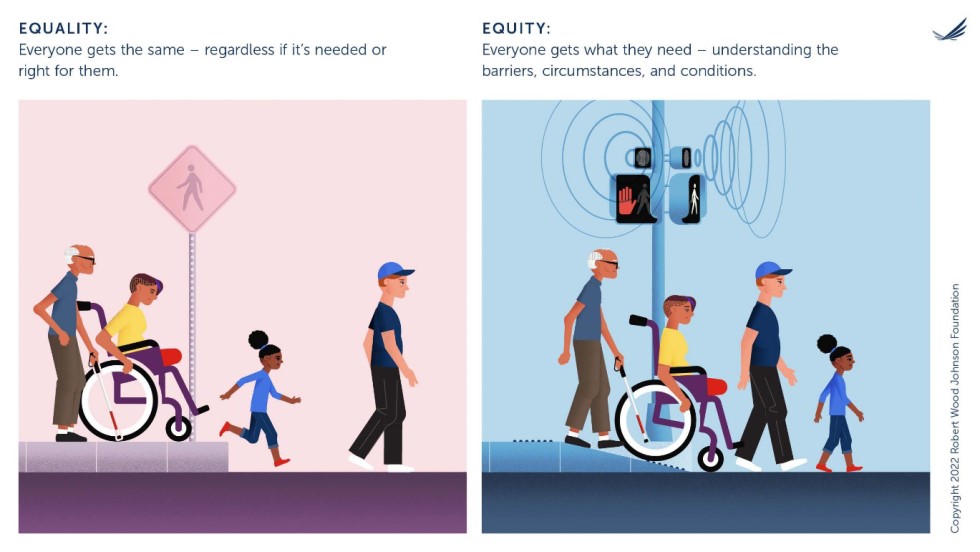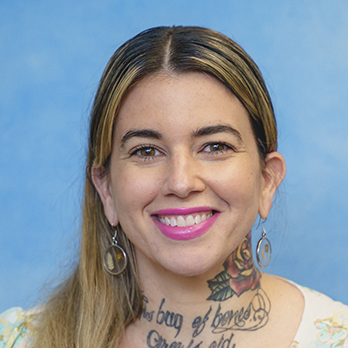Defining the ‘E’ in JEDIB

Health equity and why it’s essential
Let’s unpack the E in JEDIB: Equity. Health equity means seeking optimal health for everyone, regardless of their background or socioeconomic status. Working toward health equity requires that we take proactive action to confront historical and contemporary injustices to eliminate health disparities.
Here’s an example: Through The Wright Center for Patient & Community Engagement, we explore the social determinants of health (SDOH) and how they impact our community and contribute to health disparities and inequities. SDOH includes transportation, education, language, and literacy skills.
Instead of becoming frustrated because a patient may not be following a provider’s protocol or meeting their health goals, reframe your perspective. Do they have safe housing? Can they afford healthy food? Do they have access to transportation to obtain that healthy food and visit doctors?
These barriers to access can raise the risk of various health conditions – including heart disease – and can lower life expectancy. They can also perpetuate harmful stigmas and discrimination. Read more here: https://health.gov/healthypeople/priority-areas/health-equity-healthy-people-2030
Through our food pantries, community closets, and other community outreach activities, plus the essential work our community health workers provide, patients and community members live fuller, healthier lives. It’s important to remember, however, that an individual’s journey to health equity can have a behavioral health component to address. The roots of these issues and barriers often run deep.
It’s also important to note how equality and equity are often used interchangeably, but the concepts are different. Equality may sound honorable, but equity is the ultimate goal. It raises awareness of social injustices and provides appropriate resources to those who need them. Equality assumes that everyone will experience the same circumstances and challenges and that each person operates from the same starting point.
Take a look at the image below and watch this video to gain a deeper understanding:

What did you learn by watching this video? Please take some time to reflect on it.
Here are some action steps we can take to work towards equitable health for all:
- Increase awareness of racial and ethnic disparities in health care and work towards action.
- Improve access to care and create safe, accessible environments for patients with disabilities.
- Recognize the importance of cultural humility and health literacy.
- Work towards affirmative action.
Did you know? The Wright Center was recently awarded a $3 million grant from the U.S. Health Resources and Services Administration that focuses on resident and faculty development in the domains of populations with Limited English Proficiency (LEP) and/or physical and/or intellectual and developmental disabilities (P/IDD). We will be working with subject matter expert, Dr. Lisa Tshuma, who is the project director on this project. Read more about the grant by clicking here.
We all can take steps to create profound change. Take part in our many initiatives to learn and take action on health inequities and disparities.
Thank you,

Allison LaRussa, B.A, CPS, RYT (she/her)
AVP, Health Humanities, Trauma-Informed Sanctuary Frameworks, and Justice, Equity, Diversity, Inclusion, and Belonging
The Wright Centers for Community Health and Graduate Medical Education








